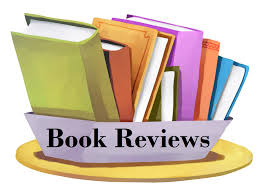I had an interesting question recently from Lisa Romeo, one of our Savvy Pros, and she asks about how to get media attention when you have a memoir.
She asks, “As the author of a memoir, if you are NOT looking to become a subject matter expert (brand) on a particular issue, what is the best way to get consumer media interested in the book?”
First, the definition of media has been changing and evolving, so in order to ask how to get consumer media interested in your book, you have to pick the channels that reach the target you’re aiming for. I’ve identified 9 channels now, and the first thing is to determine is which channels make the most sense for you from two different perspectives: Who and where is the market for your book and secondly, what kinds of media do you like to do?
The 9 channels are:
- Influencers
- Podcasts
- Digital print
- Bloggers (falls under digital print, but they are different from trained journalists)
- Video media
- Social media
- Television
- Radio
- Legacy print
I don’t have space here to go into all the different channels and how you can reap the most rewards from each one, but keep in mind that memoir benefits greatly from the following:
- Reviews
- Excerpts
- Articles
- Guest blog posts
There are different types of reviews, and the ones you should target will depend on who publishes your book and the kind of distribution you have.
Industry trade reviews tell book stores and libraries what they should be ordering into their outlets, and include Publishers Weekly, Kirkus Review, Library Journal, Booklist, etc. Each of these also has a revenue-producing arm, so if you don’t fit the requirements for an unpaid review, you have the option of paying for a review. Now, up until a couple of years ago, I balked at paid reviews, but some of them actually look pretty good and if you’re looking for link love, and you’re self-published, it is an option for you.
Beware: There are companies and hybrid publishers who will charge you money to conduct publicity/marketing campaigns for you, but rather than submitting for review, they will take your money and do the paid option for reviews. They take the credit that they got you a review, and then you shout it from the rooftops that you got a review…when what it really was was a paid advertisement. (I see things almost every day that astonish me.)
Customer reviews are from those who actually buy your book (think social proof), and book review opportunities inside long-lead magazines and newspapers that are still doing book reviews. The point is with memoirs, reviews are critical.
Excerpts in magazines and online sites can be of great help to your book as well. If you have a publisher, you will have to get permission to take excerpts and get them published elsewhere. The except needs to be complete unto itself with credit to you and your publisher, along with a link to buy in the byline. They don’t always give you a link to buy, but it’s good to include in the byline anyway–just in case. Now and then, I run into an outlet that doesn’t want to include any links. You have to really think about this because, without that link, it’s many extra steps for people to actually buy the book. Personally, since you are giving them content, this is something they should do, IMHO.
The next important element for promoting a memoir is bylined articles and guest blog posts. Write about your topic. Brainstorm ideas. Think about what would be compelling to write about that your designated media channels would like to pick up. Study the media. What do they care about? What are they covering? Are they covering stories like yours?
Whatever kind of book you’re promoting, it’s going to take effort. Even when you have tons of contacts, you still have to figure out if your material is a match, and how you can pitch it so that they’re interested.
As I’m fond of saying, this isn’t brain surgery, thank goodness, but it does take effort. If you believe in yourself and your book, and you’re willing to do the research and try, try again, you will have success.
Next, you must define what success is for you because I have found it is different for everyone.
Remember: Every author is unique. Every book is unique. You are unique.
To your success!
Joanne

